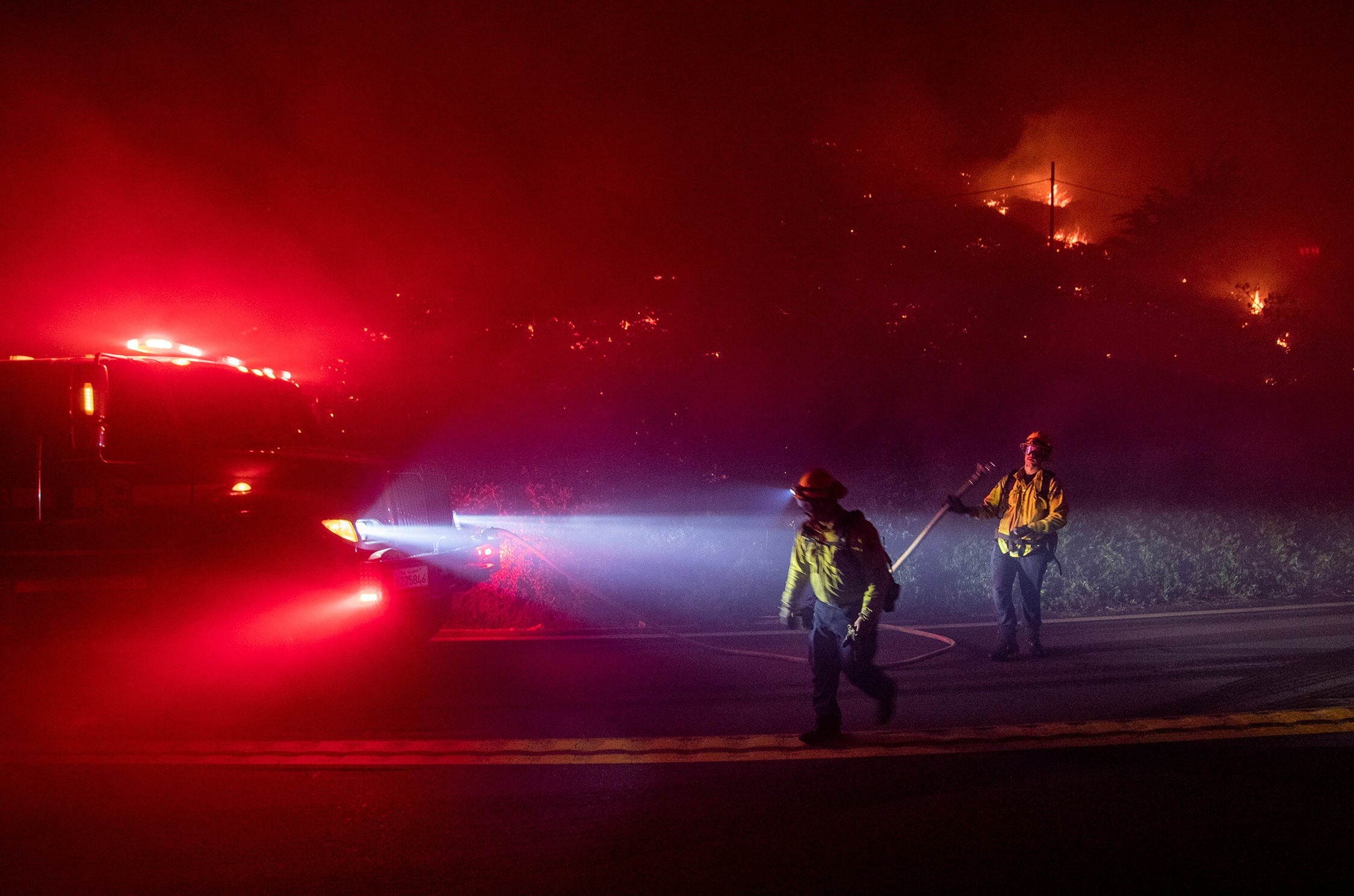Firefighters gain control of wildfire that closed scenic California highway
California has long had an active wildfire season, but it has grown longer and more punishing in recent years, fuelled at least partly by climate change and a two-decade drought

Your support helps us to tell the story
From reproductive rights to climate change to Big Tech, The Independent is on the ground when the story is developing. Whether it's investigating the financials of Elon Musk's pro-Trump PAC or producing our latest documentary, 'The A Word', which shines a light on the American women fighting for reproductive rights, we know how important it is to parse out the facts from the messaging.
At such a critical moment in US history, we need reporters on the ground. Your donation allows us to keep sending journalists to speak to both sides of the story.
The Independent is trusted by Americans across the entire political spectrum. And unlike many other quality news outlets, we choose not to lock Americans out of our reporting and analysis with paywalls. We believe quality journalism should be available to everyone, paid for by those who can afford it.
Your support makes all the difference.Firefighters have gained greater control of a wildfire that closed northern California’s scenic coastal highway and threatened a famous bridge, although about 500 people stayed under evacuation orders, officials said.
The so-called Colorado Fire, about 15 miles (24 km) south of Monterey and just north of the area known as Big Sur, broke out on Friday night and crossed the Pacific Coast Highway, burning for a time on the ocean side of the road.
The fire approached but did not damage the Bixby Creek Bridge, known for its spectacular concrete arch support that soars 260 feet (80 meters) over the gorge and the Pacific Ocean below.
The fire was 35 per cent contained on Sunday night, up from the morning’s figure of 25 per cent, the California Department of Forestry and Fire Protection (Cal Fire) said in an update.
The blaze was limited to about 700 acres (283 hectares), down from 1,050 acres in the morning, a revision it attributed to “accurate mapping”.
Cal Fire said: “The fire behavior was moderate and made wind-driven runs late Saturday night and into Sunday morning,” adding that crew efforts to build and improve containment lines and mop up hotspots would continue on Sunday.
One structure, an occupied yurt, was destroyed, said Cal Fire spokesperson Cecile Juliette. Most of those under evacuation orders are believed to have left the area, she added.
Such fires are atypical for this time of year, as the Colorado Fire has scorched an area that went more than a decade without a January fire across more than 100 acres (40 hectares), Juliette said.
California has long had an active wildfire season, but it has grown longer and more punishing in recent years, fueled at least partly by climate change and a two-decade drought.
“We’ve had several fires across northern California in the last few years that have been different than the fires from 10 or 15 years ago,” Juliette said.
“They’ve been much bigger, (with) much more energy, much hotter and spread much more quickly. So this is the new California.”
Reuters
Join our commenting forum
Join thought-provoking conversations, follow other Independent readers and see their replies
Comments